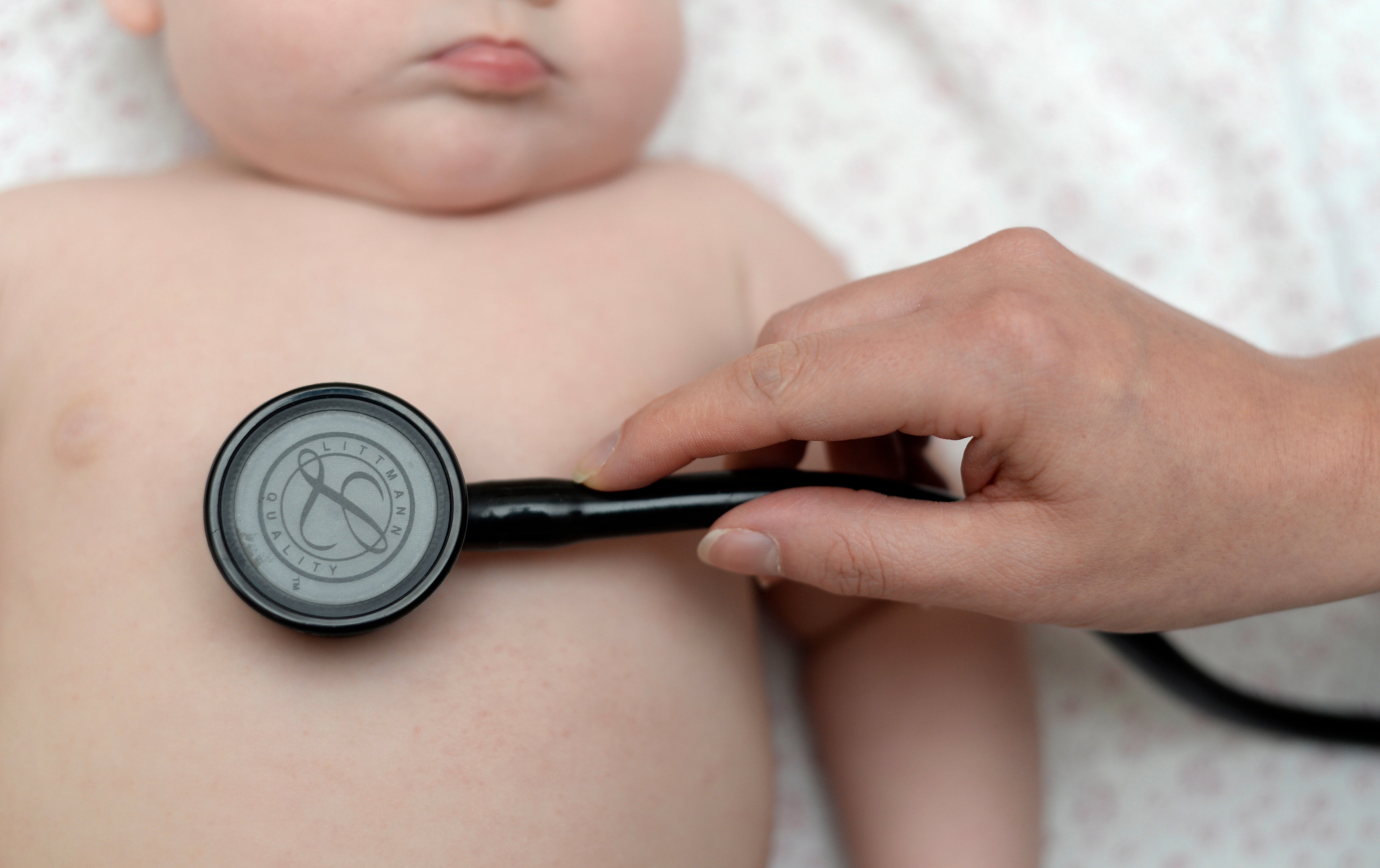Lives of mothers and babies at risk due to maternity understaffing, midwives warn
Workers say staff working in different areas to usual expertise – with reports of women harmed by understaffing

Grave staff shortages in maternity services are placing the lives of mothers and babies at risk, midwives and campaigners have warned.
A report by the All-Party Parliamentary Group (APPG) on Baby Loss and Maternity revealed services are overstretched, with too many women, their families and employees suffering the repercussions.
Many workers said staff were being forced to work in different areas than their usual expertise, which was endangering patients, with reports of women being harmed as a by-product of the understaffing crisis.
Data shows 500 midwives left the NHS in the past year, compounding a longstanding shortage of over 2,000.
Have you been affected by this story? If so email maya.oppenheim@independent.co.uk
The Royal College of Midwives, and Sands, the main UK pregnancy and baby loss charity, are demanding ministers take action to tackle staff shortages.
Frontline workers, women and their relatives warned the staffing deficit was widespread, with some NHS workers saying staff are anxious about making errors as a direct consequence of shortages, according to the APPG report.
Rushed appointments are also impeding the quality of care that overworked staff provide to patients, with scant time to do routine checks on pregnant women, it found.
Cherilyn Mackrory, the Conservative MP for Truro and Falmouth who is co-chair of the APPG on Baby Loss, said: “Following on from the Ockenden [maternity care] report, this report affirms yet again that investment is needed to ensure maternity and neonatal services are well staffed and supported so that we deliver the care women and families need.”
Over half of midwives said they were contemplating quitting, with almost six in 10 saying they would leave their job in the next year, polling carried out last year by the Royal College of Midwives found.
Gill Walton, the organisation’s chief executive, said: “A serious, persistent and worsening shortage of midwives and other staff is having an impact on the safety and quality of care for women, babies and families.
“Staff are working flat out and doing their best but they are burnt out, fragile and exhausted. The demands on them mean they cannot deliver the level of care they so desperately want to, and choice for women is being eroded. For many, crisis mode is now the norm.”
Ms Walton said this explained “why many are choosing to simply walk away from the NHS because they know they cannot deliver the right care” as well as leaving "for the sake of their own mental and physical health”.
She added: “We must see urgent action and investment because services are simply on their knees.”
The APPG report called for minimum staffing levels for maternity and neonatal workers.
Clea Harmer, chief executive of Sands, said: “Today’s report paints a worrying picture of NHS staff having to make the choice between supporting a bereaved mother or caring for a mother giving birth to a living baby, often rushing between the two leaving no time for personalised, compassionate bereavement care.
“Too often inexperienced midwives are being left on their own to care for bereaved families and this is simply not good enough.
“Every parent whose baby has died deserves equal and excellent bereavement care. It’s the very least we can do for them. Good quality bereavement care is vital for parents who have experienced the loss of a pregnancy, or whose baby has been stillborn or died in hospital during the first weeks of life.”
Dr Edward Morris, president of the Royal College of Obstetricians and Gynaecologists, noted the NHS remains “one of the safest places in the world to give birth” but warned more could be done to ensure improvements in maternity safety.
It comes after healthcare leaders told The Independent that maternity staff were facing extreme burnout during the pandemic as staff shortages and longer, busier shifts led to the workforce becoming increasingly overwhelmed.
Last year, senior figures working in pregnancy services said healthcare professionals were working longer hours, covering extra shifts and spending more time on-call to compensate for increasing numbers of employees taking time off work after getting Covid-19.
Staff said stress-related absences had reached “worryingly” high levels, with junior doctors and midwives “thrown into the deep end” due to having to fill in for colleagues.




Join our commenting forum
Join thought-provoking conversations, follow other Independent readers and see their replies
Comments